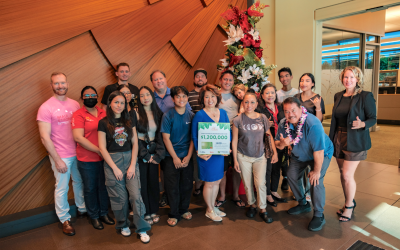HEC President and CEO Clayton A. Kamida has prepared information of immense importance to HRA members, as the U.S. Department of Labor has proposed to rescind federal regulations imposing limitations on certain types of tip pools.
Department of Labor has proposed to rescind federal regulations imposing limitations on certain types of tip pools.
Please see the below summary, and submit comments with the department. The deadline for public comment is Monday, Feb. 5. You will find the link for submitting comments electronically in the summary.
DOL Seeks Comments on Rescission of Tip Pooling Limitations
On December 5, 2017, the federal Department of Labor (“DOL”) published a Notice of Proposed Rulemaking which proposes to rescind federal regulations that impose limitations on certain types of tip pools. https://www.dol.gov/whd/flsa/tipcreditnprm.htm. The new rulemaking will allow restaurants and other establishments with tipped employees to have a mandatory tip pool that includes “back of the house” staff (such as cooks, dishwashers, expediters, etc.) as well as “customarily and regularly tipped employees” such as waitstaff, bussers, and bartenders, so long as all employees in the tip pool are directly paid by the employer no less than the full federal minimum wage (currently $7.25 per hour), and the employer does not take the federal tip credit.
If the proposed amended regulations are enacted, employers will be able to require “customarily and regularly tipped employees” such as waitstaff, bussers, and bartenders to share their tips with “back of the house” staff (a practice sometimes referred to as “tipping out” or “tip splitting”). In proposing the change, the DOL acknowledged that the agency misinterpreted a provision in the Fair Labor Standards Act, at 29 USC 203(m), which provides that if an employer takes the federal tip credit and pays a tipped employee less than the federal minimum wage, the affected employee must be allowed to retain all of the tips he/she receives.
Because under current Hawaii law (as of January 1, 2018), employers utilizing the Hawaii tip credit must pay tipped employees a minimum direct wage of at least $9.35 an hour (assuming the employee averages at least $7.00 per hour in tips), all Hawaii employers are already required to pay more than the current federal minimum wage of $7.25 per hour. Therefore, once the federal regulations are amended, Hawaii employers can utilize the Hawaii tip credit, and also require front of the house staff to share tips with back of the house staff.
Employers supporting the proposed rescission should submit comments in favor of the rulemaking to the DOL. Electronic comments may be submitted on the federal rulemaking portal at: www.regulations.gov. In the portal’s search bar, type the query “RIN 1235-AA21” (which is the number assigned to the proposed regulations). You will see a “comment” button which will allow you to directly enter your comments.
Some of the benefits of a tip pool which includes “back of the house” staff include: (1) reduced wage disparities among employees who all contribute to the customer’s experience; (2) enhanced teamwork and improved relations between the “front of the house” and “back of the house” staff; and (3) decreased turnover among kitchen workers.
Employers submitting comments in favor of the rule change should comment on the benefits of tip pools to all staff (such as promoting teamwork, and improved relations between employees).




0 Comments